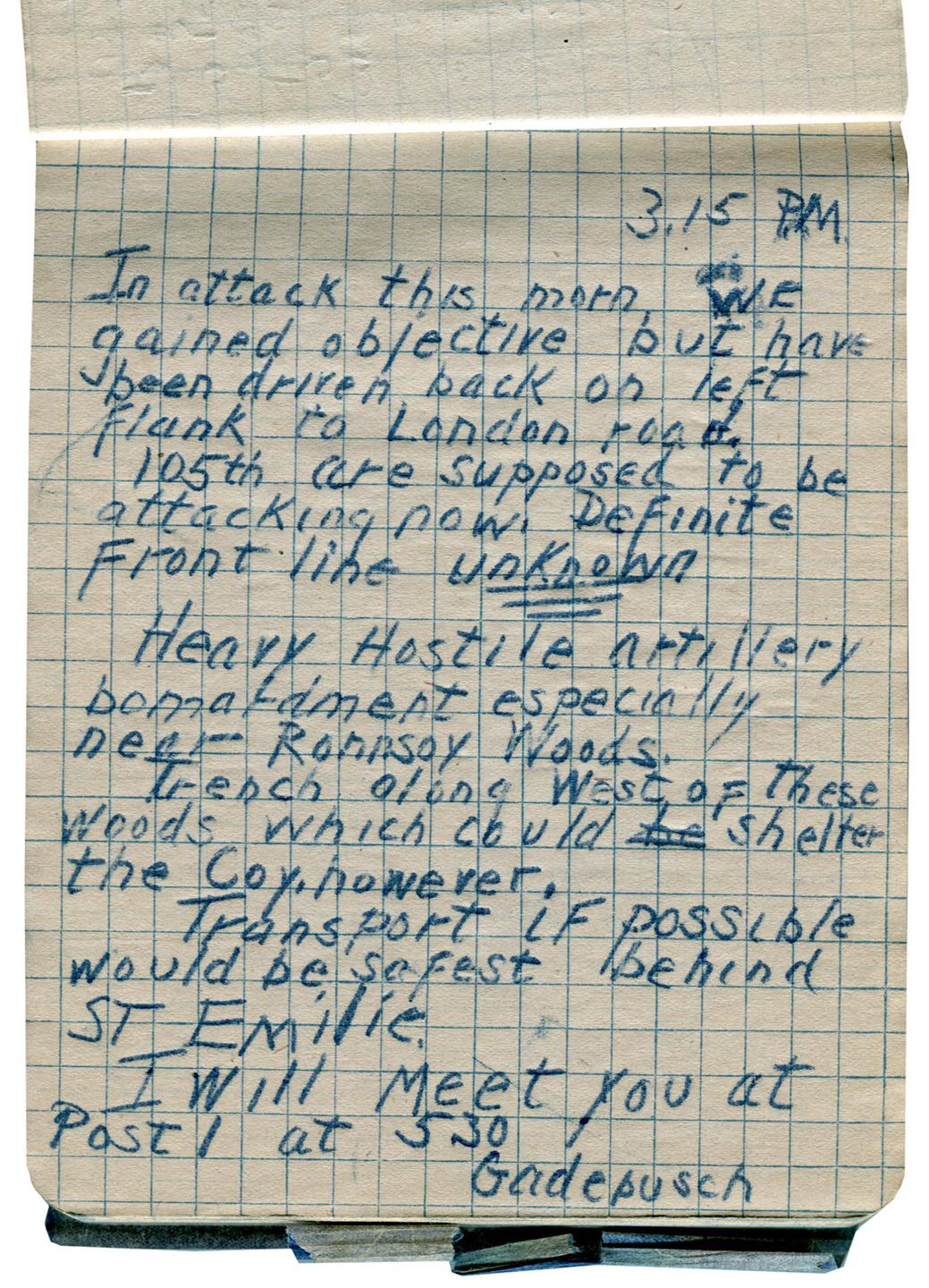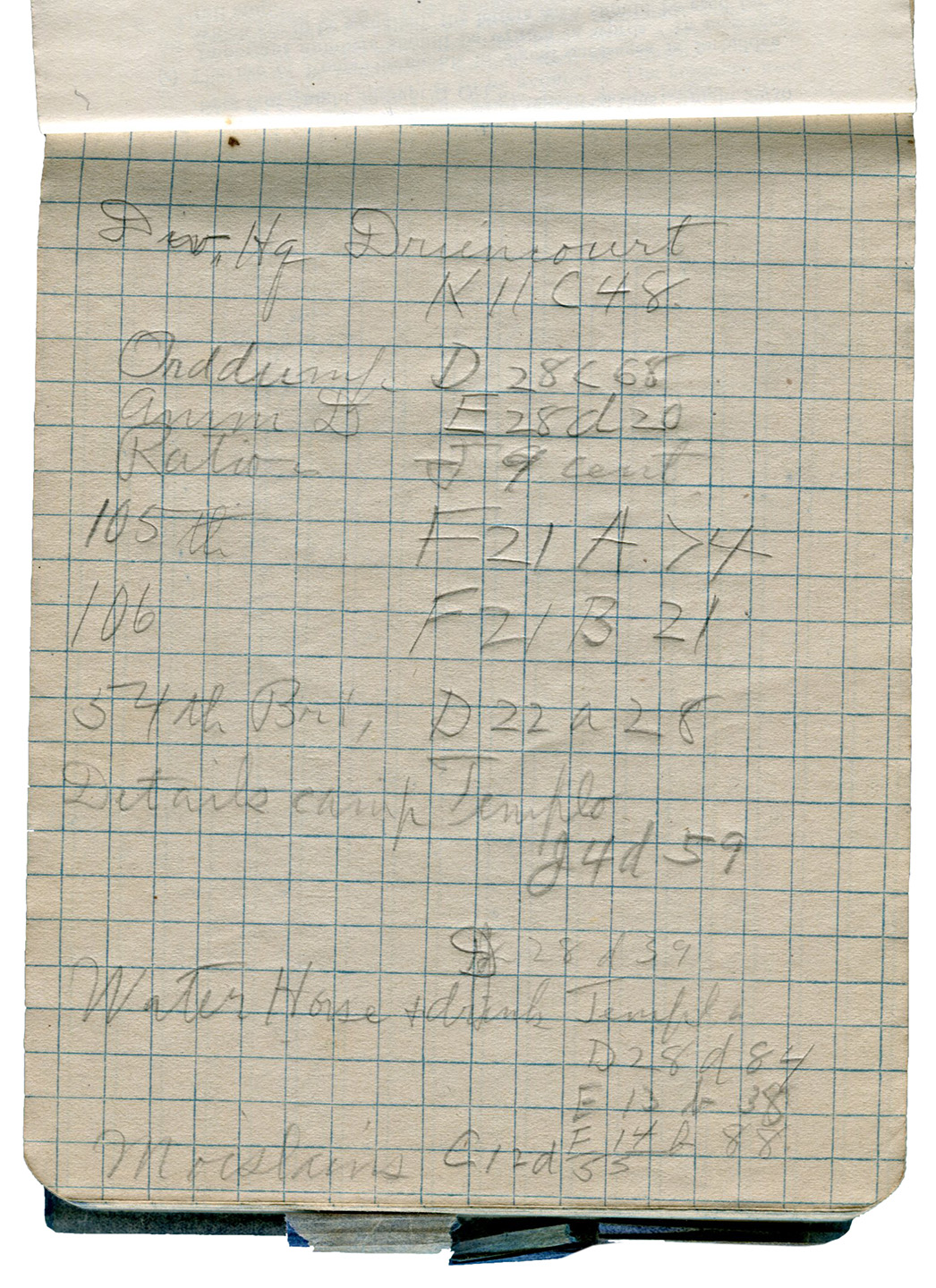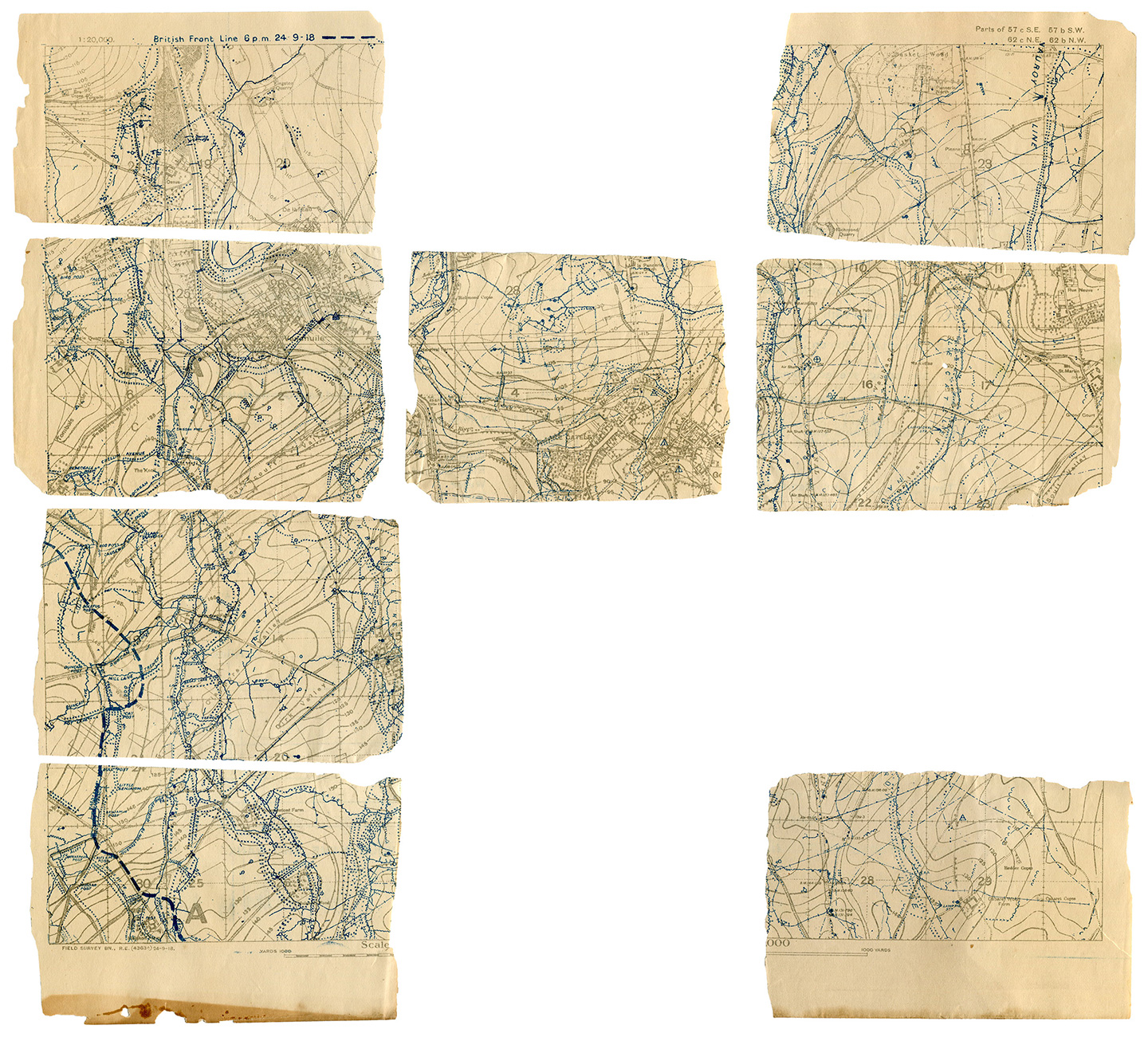 |
 |
 |
 |
| (World War I) Field Message Book “Army Book 153” of Second Lieutenant Paul H. Gadebusch, 1st Battalion, Machine Gun Company of the 107th Infantry, 27th Division, 2pp., (116 pp. total), 179 x 120 mm. (7 x 4 3/4 in.), with carbon copy sheet attached. Although undated, Gadebusch penned this entry into his notebook a matter of hours before his infantry breached the Hindenburg Line, on 29 September 1918, a pivotal battle of the war in favor of the Allies, and a battle in which Gadebusch was severely wounded. He wasn’t alone, as the 107th sustained the highest number of casualties of any American regiment in a single day during World War I: 648 wounded and 337 killed, in full: “3:15pm: In attack this morn we gained objective but have been driven back on left Flank to London road. 105th are supposed to be attacking now. Definite front line unKnown. Heavy Hostile artillery bombardment especially near Ronnsoy Woods. Trench along West of these Woods which could be shelter the Coy. however. Transport if possible would be safest behind St. Emilie. I will meet you at post 1 at 5[:]30. Gadebusch.” Together with fragments of a field map, presumably belonging to Gadebusch, and a fragmented typed list of army officers with notes related to their character, intellect and abilities, or lack thereof, “Thomas, George, Sgt. Slow thinker, bright, unpopular, stupid… [Cpl.] Parke, Ira -Good, reliable, educated, traveled… 4th Squad, Cpl. Sawtell, Albert -Bright, well liked, quick but a fault finder. French, lazy…” Paul H. GADABUSCH (d. 1957) graduated from Princeton in 1916 and upon graduation enlisted in the 7th New York Infantry, serving on the Mexican border from June to December 1916. During the First World War, he served in France, attaining the rank of 2nd Lieutenant five months prior to the attack on the Hindenburg Line. Oddly enough, despite his valiant service in the Great War, the FBI was investigating his father, Paul Gadebusch, a suspected German sympathizer, for aiding and abetting attempted espionage. According to 12 July 1917 War Department documents, Gadebusch (Sr.), President of F. Schumacher & Co., “…acted as paymaster for the German sailors in Philadelphia and in other ways furnished assistance to German subjects. …It may be that this man is an important German agent and that he may have been implicated in plots which would justify his internment should it develop that he is not a citizen.“1 An additional document dated 4 August 1917 lists as the Title of Case, “Re: Paul Gadebusch – President, Schumacher & Company (Suspect)“, and describes an interview with C.A. Ault, a former clerk at F. Schumacher & Co., who claimed that Gadebusch, Sr. and his business associate, H.L. Rose, “…would be willing to do anything they could to furnish information to Germany.” He also accuses Gadebusch, Sr. and Rose of funding German espionage operations in America, “…on numerous occasions, either Rose or Gadebusch would go to their bank… and draw out amounts ranging from three to five hundred dollars in bills of small denominations and this money would some how or other disappear. …on one occasion Rose drew out about $500 in bills of small denominations and made a trip to their Philadelphia office… a few days latter he [Ault] read of the arrest of some of the German interned sailors who had escaped from Philadelphia and a considerable number of new bills of small denominations was found on them. He connected this up with Rose’s visit to Philadelphia, but has no facts with which to back them up.“2 We do not know the outcome of the FBI investigation, nor do we know if Gadebusch, Jr., ever had any awareness of his father’s alleged activities. Certainly worthy of further research! Edge wear, soiling, overall fine condition. The field book, map fragments, and typed list of army officer names and characteristics, together, three pieces. (EXA 5622) $375 |
|
